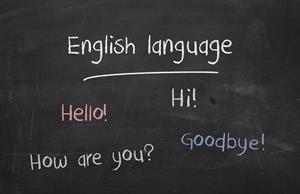Read, listen and learn some new words.
(Lasi, klausies un iemācies jaunos vārdiņus!)

singular — [ˈsɪŋ.ɡjə.lər] — vienskaitlis
plural — [ˈplʊə.rəl] — daudzskaitlis
countable — [ˈkaʊn.tə.bəl] — saskaitāms
e.g. dogs, files, globes, leaves, classes etc.
uncountable — [ʌnˈkaʊn.tə.bəl] — nesaskaitāms
e.g. water, friendship, light, grass etc.
Nouns are used in possessive case (theme "Possessive Case and Pronouns")
possessive case — [pəˈzes.ɪvˈkeɪs] — piederības locījums
e.g. the girl's bag, the boys' balls, the top of mountain
adverb — [ˈæd.vɜːb] — apstākļa vārds
Adverbs are divided into several groups.
adverb of manner — [ˈæd.vɜːb.əvˈmæn.ər] — veida apstākļa vārds
e.g. carefully, slowly, well, together, fast etc.
adverb of time — [ˈæd.vɜːb.əvˈtaɪm] — laika apstākļa vārdi
e.g. today, yesterday, ago, just, finally etc.
adverb of frequency — [ˈæd.vɜːb.əvˈfriː.kwən.si] — biežuma apstākļa vārdi
e.g. always, ever, never, often, sometimes etc.
adverb of place — [ˈæd.vɜːb.əvˈpleɪs] — vietas apstākļa vārdi
e.g. here, opposite, outside, far away, there etc.